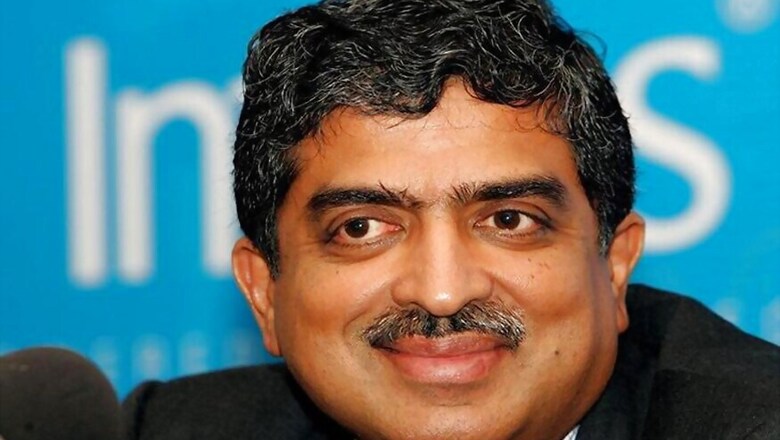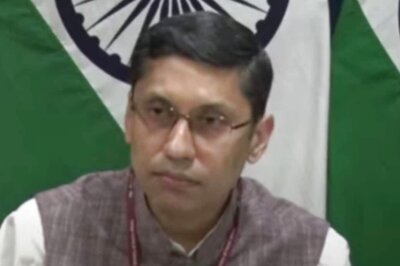
views
Mumbai: Infosys chairman and Unique ID project architect Nandan Nilekani on Tuesday said the "original rationale" for bank nationalisation has ceased to exist and that privatisation is the way forward the public sector lenders citing the taxpayers' interest.
Nilekani, who contested the last Lok Sabha polls on a Congress ticket, said banks were nationalised over five decades ago because they were focusing only on big industries and ignoring smaller ones. The 21 state-run banks had suffered reverses because of lending to large companies.
Introduction of technology-based solutions also makes it possible to cater to the requirements of the smaller borrowers, who were neglected in the pre-nationalisation era, the technocrat said.
"The original rationale has gone away and so let most banks function on market principles owned by the general public," he told reporters, adding privatising them is also in the interest of taxpayers.
"We should privatise. We have a choice between some of the value is captured by the taxpayers, by the state or privatisation," he said, adding it is better to give the upside to taxpayers when state-run banks hold a 70 per cent market share.
The technocrat pointed out that the pace of losing market share has increased and in 10 years from now, they will hold 10 per cent market share. In a year from now, it will be commonplace for one to make merchant payments for very small purchases like paan by scanning a QR code on your mobile phone, Nilekani said.
"There will be a sudden movement to QR-code based payments using the unified payments interface (UPI) in six to nine months. In a year, payments at the paan shop will happen through this," Nilekani told reporters here.
Nilekani, the architect of the unique ID project Aadhar, said there will be a "massive dissemination" of UPI QR codes in the next few months. He said unlike the card-based payments, merchant payments will be the last level for the UPI journey, which started with peer-to-peer payments.
UPI-based transactions, which have risen to 172 million in February from 0.1 million in October 2016, will shoot up to 1 billion a month by December 2018, he said. Nilekani said with the deepening of the digital journey in everyone's lives, even businesses have gotten digital, courtesy the GST, India will transform to a postpaid economy from a prepaid one.
This will be possible because lenders and vendors or creditors will be able to assess a borrower or buyer better, he said, adding a lot of lending will take place on cash flows and not the present collateral-based system.

















Comments
0 comment